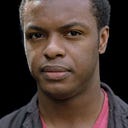From Cops to the Nine Nine: Copaganda is Good for Nobody
Something outgoing NUS Black Students Officer Fope Olaleye tweeted about sitcom Brooklyn Nine-Nine stayed with me.
It made me think about the #ACAB (All Cops are Bastards) acronym and whether I can talk about police officers in broad strokes. I was pushed on to Brooklyn Nine-Nine by a friend, after actively avoiding it for years. One reason being because it just looked completely ridiculous. But the more important reason is that I did not feel comfortable that one of the most violent institutions in society can be made into comedic value. I like the show, but in hindsight of George Floyd, and the other victims of the recent spate of murders by US police, I am re-evaluating these shows and television like it.
No matter how pretty the writers try to dress up the Nine-Nine; no matter how diverse the cast is (great), police will always be police and this show is a prime time copaganda.
My degree is in creative writing and I do spend a lot of time watching film and television series. I do believe artists and storytellers, especially screenwriters and TV writers have a responsibility to accurately portray the institutions they are depicting. Brooklyn Nine-Nine is in a fairy tale version of the world we live in and is nowhere close to a true likeness of the NYPD (New York Police Department), the same department that prosecuted five Black and Latino boys for a rape and attempted murder they didn’t commit, of a white woman. Linda Fairstein, the prosecutor of the exonerated Central Park 5 then went on to have a long career as a crime novelist, and also advise on the early seasons of hit series Law and Order: Special Victims Unit (more American copaganda).
When I think about television depictions of police and law enforcement more generally, most of it is copaganda. Then I think about how the rap group N. W. A were on the FBI’s most-wanted for speaking their truth about personal experiences with the Police and how they began to empower Black people all over the world. In the late 1980s, Black Britons resonated with the conscious lyrics N. W. A wrote, which speaks volumes. Public Enemy’s Chuck D in ‘Louder than a Bomb’ said “your CIA, see I ain’t kiddin’ / both King and X, they got ridda both” but the depictions of law enforcement in film and television is always positive. They’re the good guys. Supposedly.
There’s a privilege in believing law and order have your best interests at heart, even if you’re not the guilty party; often this comes with a whiff of class and / or white privilege.
Then we come to shows like Cops that do not even try to hide their anti-Black sentiment. In Bowling for Columbine, Michael Moore argues that white America has an innate fear of Black people. Black people are entertainment for white people. They always have been: from blackface minstrelsy that came after slavery to public lynchings in the Jim Crow era. Yet, Blacks, historically have been stereotyped as the violent ones. In Ava DuVernay’s 13th the activist-academic Angela Davis talks how the FBI branded her “armed and dangerous”, and that ties into to how historically criminality is code for Black.
Network television has portrayed Black people as a race that carry weapons and if you try and talk to them they will kill you. Whenever someone is stabbed in the UK, I know in some circles I will be expected to have an opinion because more often than not the mugshots I see of the victims and perpetrators are young Black boys. Anti-blackness is global and Black police also fall into the trap of racial profiling, even their own people. Police officer first, Black second; that tribalism, that supremacy is pervasive and we cannot pretend that police violence is just about racist police officers.
I first listened to ‘Fuck tha Police’ at thirteen years old; I recall Ice Cube saying “Cause they’ll slam ya down to the street top / Black police showin’ out for the white cop / Ice Cube will swarm / On any motherfucker in a blue uniform
If you’re Black in this country or the United States, you’re branded a criminal. The prison and stop and search data speak for themselves. Programmes like Brooklyn Nine-Nine and Cops are to say the least problematic, especially for Black viewers and really any ethnic group that do not fit into the pretty little box of white privilege. I try to watch shows like Nine-Nine in the same vain I watch a Disney film, within the realms of escapism. Pure fiction. Yet, in light of the recent international civil rights movement against racial inequality, including institutional racism, I am struggling to even do accomplish that.
I bet it’s ironic that one of my top ten shows of all time is a police crime drama. The Wire, a show that does not glamorise policing and truly shows how ineffective it can be due to the flawed internal structural mechanics and other hidden agendas, that lean on the political. It paints a grim picture of crime in the United States, a country where 1 in 4 of the world’s inmates are (13th). David Simon’s show also supports #ACAB where Brooklyn Nine-Nine does not. That despite doing their jobs, the show says “all cops are bastards” because they carry out the horrific acts, violent policing from the hands of awful policies at the behest of Baltimore Police Department. Grim stuff.
